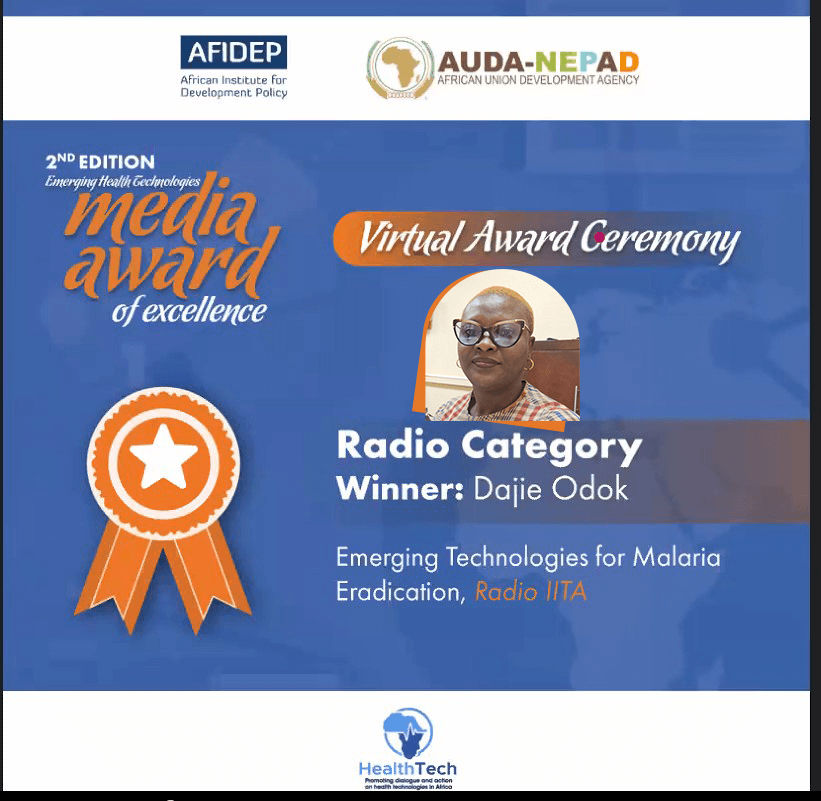Embracing innovation in science reporting: My journey and reflections

I am honored to share that I recently received the 2024 Emerging Health Technologies Media Award by HealthTech Africa for my work on “Emerging Technologies for Malaria Eradication.” This recognition is not just a personal achievement; it highlights the potential of science communication in addressing significant global challenges, particularly in the realm of public health and agriculture.
My passion for science reporting stems from an unyielding curiosity about how innovative technologies can reshape our understanding and interaction with the world around us. This curiosity led me to explore cutting-edge advancements, such as gene drive technology, which has the potential to revolutionise malaria eradication efforts in Africa.
However, reporting on these complex topics presents unique challenges and opportunities, especially in African media outlets. One major challenge is the public’s varying levels of understanding regarding scientific concepts. While many people may grasp the basics of malaria transmission, discussions around gene editing and its implications can be daunting. This necessitates a careful balance between conveying essential scientific information and making it accessible to a general audience.
Another challenge is the limited resources often available in African media, which can hinder in-depth reporting. Journalists may find themselves stretched thin, with insufficient time or funding to delve into research and interviews. This situation can lead to superficial coverage of crucial topics. To counteract this, I believe collaboration among media professionals, scientists, and policymakers is vital. By pooling resources and knowledge, we can enhance the quality of reporting and ensure that critical health information reaches those who need it most.
On the flip side, the growing interest in science and technology among the public presents significant opportunities. With increased access to information and platforms, there’s a rising demand for insightful reporting on health innovations. Social media and online platforms have transformed how we disseminate information, allowing stories to reach wider audiences. This shift provides a unique chance to engage the public in meaningful conversations about health technologies and their potential impact on our lives.
Additionally, as journalists, we have the responsibility to highlight not just the challenges posed by new technologies but also the ethical considerations and community perspectives surrounding their implementation. For instance, while gene drive technology offers promising solutions to malaria, it raises important questions about ecological balance, biodiversity, and the potential consequences of altering species.
In conclusion, receiving the Emerging Health Technologies Media Award is a reminder of the significant role we play in shaping public discourse on health innovations. By striving to bridge the gap between science and the public, we can empower communities to make informed decisions and engage with critical health issues. As I continue my journey in science reporting, I remain committed to exploring the intersections of technology, health, and agriculture, sharing stories that inspire hope and drive change in our communities. Together, we can illuminate the path toward a healthier future for all.

